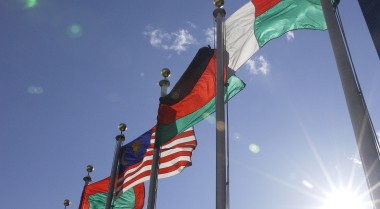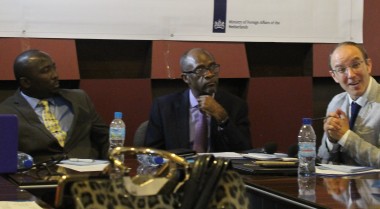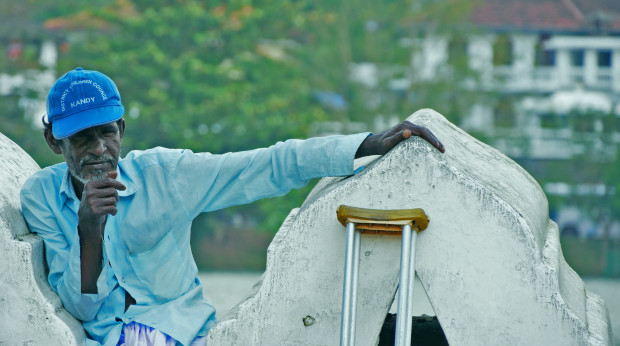
Democratic Backsliding: Should the Peacebuilding Community be Concerned?
Studies indicate that there has been democratic backsliding in recent years in as many as 25 countries, including the United States. The reasoning is that the constant threat to democratic institutions and norms due to terrorism and political violence, combined with the emergence of populist and authoritarian governments that feed the fear created by random acts of violence targeting unarmed civilians, is constructing an ecosystem where democratic practices and behavior are severely under stress.
While it is problematic to use prevalence of terrorism and violence as an excuse for democratic backsliding, the key question is are we witnessing a reverse wave of democratisation across the globe?
True, we are seeing far less military dictatorships, coups and violent transitions of power than previously; however, in its stead is an increase in the number of instances where democratic institutions, principles and norms are constantly undermined and weakened over time. This is apparent in most key democracies in the world, and South Asia is no different. In my recent article that appeared in The Panorama, I contextualize it against political change and developments in Sri Lanka, but the situation is no different in other countries in the region.
The understanding of democracy has reduced to just peaceful transition of power. Why is this of concern? If democracy is seen and accepted in its minimalistic sense of just a peaceful transition of power, then the focus is only on winning the elections at all cost. This has paved the way for majoritarian politics and rule instead of adherence and advancement to democratic principles and norms like inclusivity, transparency and accountability.
The danger with a majoritarian rule in a multi-ethnic and pluralistic society is that the dominant party becomes a custodian of its version of nationalism, and enforces that. And when attempts are made to exclusively reinforce certain identities for electoral victories, they do great harm by creating and accentuating schisms within the polity.
Today, the irony of democracy in practice in many countries is that you could actually have governments that are elected through free and fair elections, enjoy the popular support of the people (legitimacy), and are able to complete their full term in office (stability), but still continue to shrink the democratic space for dissent and alternative viewpoints.
If the government works for the constituencies that brought it to power, rather than for everyone who is part of the social contract, then we have a problem. As right-wing governments shrink the space for liberal narratives and expressions, promote their singular version of nationalism, and snuff out moderate voices, the ensuing high levels of intolerance to alternative viewpoints shred the social fabric and polarize communities.
In an article aptly titled, "How to lose a constitutional democracy," the authors of the academic paper that identified 37 instances of democratic backsliding in 25 countries, argue: "The most important reason the sudden collapse of democracy is rare … is that a sudden derogation of democracy simply isn't necessary. Would-be autocrats have a cheaper option to hand, one that is far less likely to catalyze opposition and resistance: the slow, insidious curtailment of democratic institutions and traditions." And the danger is that this slow departure from democratic norms and principles "can be masked with a veneer of legality, it can be cloaked with plausible deniability."
Today, the irony of democracy in practice in many countries is that you could actually have governments that are elected through free and fair elections, enjoy the popular support of the people (legitimacy), and are able to complete their full term in office (stability), but still continue to shrink the democratic space for dissent and alternative viewpoints.
The International Institute for Democratic and Electoral Assistance (IDEA) in its latest analysis seeks to address this fundamental question: Is the space for civil society space really shrinking? And sadly, the answer appears to be yes.
These trends in democratic backsliding - is it all just an academic debate, or does it actually have implications for global peace and security, particularly peacebuilding and conflict prevention? Yes, it does, because left unchecked it will definitely give birth to violent narratives within each multi ethnic plural society.
The UN WB report on Pathways for Peace makes a compelling argument on horizontal inequality and the contributing effect it has on conflict; majoritarian right wing governments' agenda of singularly promoting their version of nationalism will only sow the seeds and cultivate horizontal inequalities further, and re-establish a state centric security narrative. Weak institutions, already hollowed out due to democratic backsliding, will hardly be in any position to do crisis management, much less on addressing and upholding human security.
For far too long the international community's focus has been on post conflict peace building activities. Fortunately, in recent years the focus has shifted to conflict prevention and sustaining peace. In this context, it is important to understand and act on democratic backsliding, because as Aziz Huq and Tom Ginsburg highlight in their article, "Not every wolf threatening democracy howls and bares its teeth. Many threats are stealthy." And the international peacebuilding community must know the difference and be prepared.


